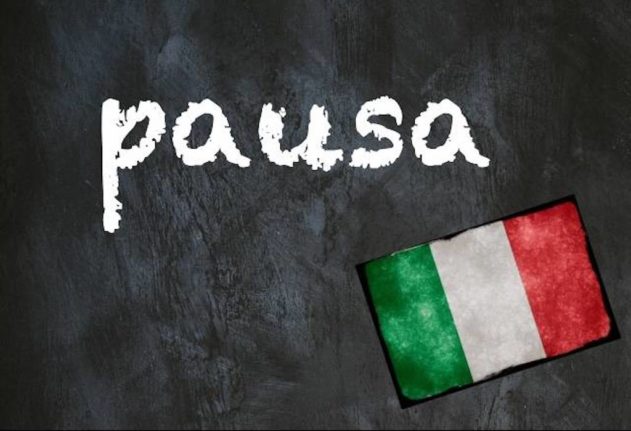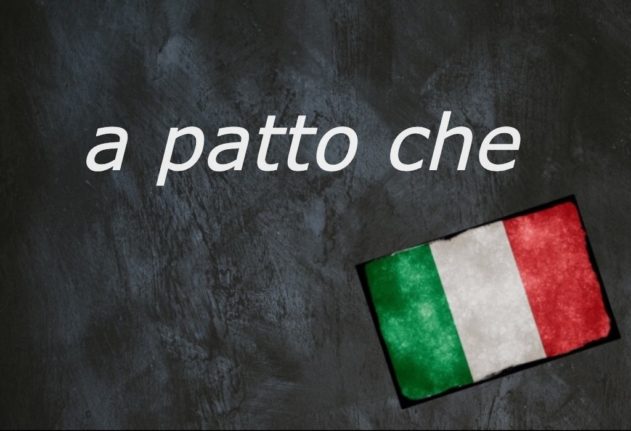If life is stressing you out, you might be in need of a pausa, pronounced the same way as ‘trouser’.
As you might guess, it means a pause, and it sometimes refers to an intermission (though intervallo is more common).
Ci fu una lunga pausa nella conversazione.
There was a long pause in the conversation.
Deve essere sfuggito durante la pausa.
He must have slipped out during the intermission.
But most often, a pausa refers to a break or recess. A pausa pranzo is a lunch break, a pausa caffè, a coffee break, and a pausa sigaretta, a cigarette break.
– Dov’è Paolo?
– È in pausa pranzo
– Where’s Paolo?
– He’s on his lunch break.
Andiamo da Franco per la pausa caffè, vuoi venire?
We’re going to Franco’s for our coffee break, do you want to come?
If you want to specify duration, you say either the length of time followed by …di pausa or una pausa di… followed by the length of time, so un’ora di pausa or una pausa di un’ora is a one hour break.

Facciamo una breve pausa.
Let’s take a short break.
And where in English we talking about needing a break, Italians say they ‘have need’ of a break, using the formulation avere bisogno.
Ho bisogno di una pausa dal lavoro per riprendermi.
I need a break from work to recover.
Do you have an Italian word you’d like us to feature? If so, please email us with your suggestion.
Don’t miss any of our Italian words and expressions of the day by downloading our new app (available on Apple and Android) and then selecting the Italian Word of the Day in your Notification options via the User button.



 Please whitelist us to continue reading.
Please whitelist us to continue reading.
Member comments